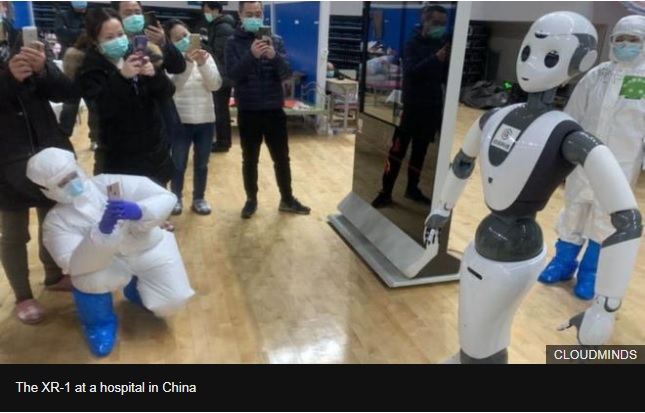
Since February, California-based manufacturer CloudMinds has shipped more than 100 robots to China.
Many of those have gone to hospitals, where the XR-1 provides information to patients and helps guide visitors to the right department.
The artificial intelligence (AI) incorporated into the machines means they can operate on their own. They also are connected to the latest 5G mobile phone networks, which means they can react very quickly.
"The fast speeds and wide reach of 5G networks make them ideal for XR-1, which interacts by talking, gesturing, dancing and physically guiding people," says CloudMinds president Karl Zhao.
According to Wuhan Wuchang Field Hospital dean Wan Jun, they have been helpful. "CloudMinds robots' contactless operation and reliability supported the field hospital through a difficult time," he says.
A few dozen robots is not going to make a big dent in the coronavirus outbreak, but it could be a sign of what's coming.
Artificial intelligence has made big steps forward in tasks like processing speech, which is making digital helpers more and more useful.

